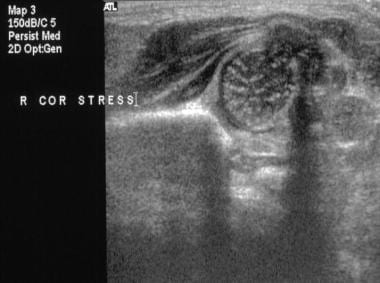Developmental Testing Program For Radiography
Posted : admin On 08.02.2020About This Program The radiographer, a vital member of the healthcare team, utilizes sophisticated x-ray equipment to obtain diagnostically valuable images of any body part. In order to perform radiographic procedures, the radiographer must have a good working knowledge of not only human anatomy and radiographic procedures, but also radiation physics, principles of imaging, radiation protection and quality assurance. Employment opportunities include hospitals, private offices and outpatient clinics, and specialties such as mammography, computerized tomography, vascular and interventional radiography, and magnetic resonance imaging. The curriculum maintains clinical affiliations with many hospitals in southern Maine, as well as several orthopedic offices in Portland.
This program prepares individuals to become radiographers at the associate degree level. Upon completion of the program, graduates are eligible to apply to take the certification examination of the American Registry of Radiologic Technologists, ARRT. Mission The overall mission of the Radiography program is to educate and train highly skilled, competent, professional radiographers to serve patients using imaging modalities to perform radiographic diagnostic procedures. The didactic and clinical education provides a broad spectrum of professional functions consistent with standards of current professional practice and which include: performance of general radiographic procedures utilizing a variety of equipment, utilization of radiation protection techniques, employment of critical thinking skills, utilization of professional communication skills and observance of confidentiality of information and appropriate patient care skills. Additional Admissions Requirements Please note that our Health Sciences programs have additional requirements. For more information, Your Degree Courses Radiography offers an Associate in Science Degree requiring a mix of general education and medical radiography courses.
The following list of courses is a sampling of what you might take as a student in this program and are subject to change. Program Course Sampling. Current Major-Specific Courses Available Interested in seeing some of the current major-specific courses being offered as a part of this degree program? Graduation Requirements Prospective Students If you are thinking about attending SMCC and are curious what the current program course requirements are to earn your degree,. Current Students If you are a current student, your program requirements may be different than those listed for the current catalog year. To view your specific program requirements or to search and register for courses, log in to MySMCC and.
Graduation Outcomes Goals Goal 1: Students demonstrate critical thinking skills necessary to function effectively in the clinical setting. Students will adapt knowledge of positioning and exposure factors to routine and non- routine situations. Students will use critical thinking skills to analyze and optimize image quality. Goal 2: To graduate students who possess the knowledge and skills of an entry level radiographer to clinically perform radiographic exams competently while demonstrating quality patient care. Students will perform routine and non-routine exams. Students will pass the ARRT examination on first attempt.

Students possess knowledge of procedures, radiation protection, and patient care. Students will demonstrate ethical values relative to quality patient care. Goal 3: Students demonstrate professional development and growth consistent with the program’s mission and expected outcomes.
Students will participate as members of their state’s professional society, (Maine Society of Radiologic Technologists). Students will orient to other imaging modalities.
Ndt Radiography Testing
Students will demonstrate professionalism in didactic and clinical settings. Goal 4: Students will demonstrate the competence of entry level radiographers who will meet the needs of the health care community. Graduates pass the ARRT exam with an average grade of 85% or higher.
Employers will indicate overall satisfaction with the graduates’ performance. Graduates will be employed within 12 months after graduation. Graduates will be satisfied with their education and meet the needs of the health care community. First semester radiography students will be retained and will graduate from the program. Goal 5: Students will demonstrate professional written and verbal communication skills. Students will demonstrate professional communication skills in the didactic setting.
Students will demonstrate professional communication skills in the clinical setting. Skills. Perform radiographic examinations on pediatric, adult and elderly individuals who present with a variety of challenges. Utilize a variety of radiographic and image processing equipment in a variety of clinical settings. Utilize appropriate radiation protection techniques for patients and personnel. Deliver appropriate patient care in a variety of clinical situations.
Demonstrate attention to clerical detail relative to all aspects of clinical examinations, including archiving, filing and retrieval of images. Interact professionally and competently with other health care personnel. Communicate to patients the basic procedural details of special imaging modalities such as interventional angiography, mammography, CT and MRI. Be eligible to apply for the American Registry of Radiologic Technologists’ examination in diagnostic radiography. Effectiveness Data. To learn more about exam pass rates, job placement rates and completion rates, Estimated Degree Completion Time.